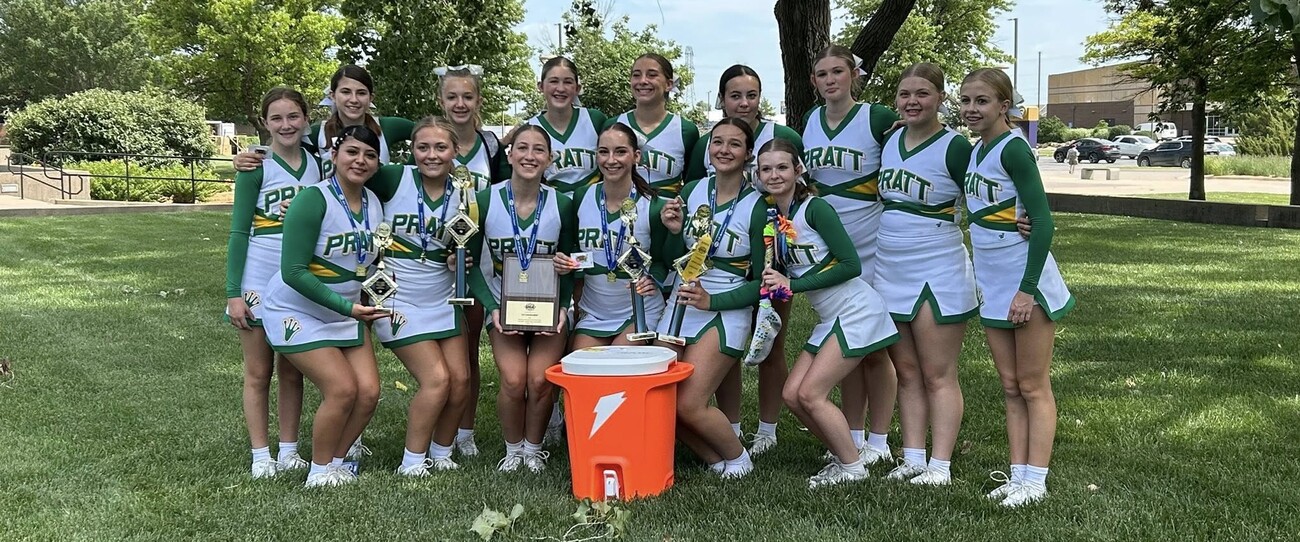Wellness Policy
District Wellness Policy Southwest Elementary School
USD 382 is committed to providing school environments that promote and protect children’s health, wellbeing and ability to learn by supporting healthy eating, wellness education, and physical activity. District wellness guidelines are based upon recommendations from the Kansas State Department of Education’s Wellness Policy Guidelines (Board of Education Policy JGCA).
Wellness Policy Guidelines - Nutrition
- All school breakfasts and lunches comply with USDA regulations and state policies.
- General atmosphere: dining area is clean, orderly, and has adequate seating and adult supervision. Atmosphere is inviting and has reasonable noise level.
- All school food service personnel receive required food safety training annually.
- Meals are not withheld or denied as a disciplinary action.
- Low-fat and/or skim milk is offered exclusively.
- BREAKFAST: All school breakfasts comply with USDA regulations and state policies. All cereals contain 35% or less of weight from total sugar and 1 gram or more fiber per serving. Foods containing whole grains are offered daily. At least five different fruits are offered each week. At least two fruits per week are to be served fresh.
- LUNCH: All school lunches comply with USDA regulations and state policies. At least five different fruits are offered each week. Four fruits per week are served fresh. An entrée choice with total fat of 16 g or less per serving is offered on a regular basis. Fresh fruits or vegetables are offered weekly. A food containing whole grain is offered at least 3 days per week. Desserts with more than 5 grams of fat per serving are offered no more than 2 times per week. All salad dressings contain 6 grams or less of fat per ounce.
- DURING THE SCHOOL DAY:
- All foods and beverages are offered in compliance with USDA regulations prohibiting sale of “foods of minimal nutritional value” where school meals are served or eaten during the meal period.
- Students are allowed to have individual water bottles in the classroom and have access to free drinking water throughout the school day.
- Teachers and parents are provided with information on healthy options for classroom rewards, parties and celebrations that meet Smart Snacks in School “All Foods Sold in Schools” Standards.
- Parents may opt their child out of snacks, birthday party treats and/or food incentive/rewards or may provide an alternate snack in place of these offered items.
- When food items are used as an incentive/reward a non-food incentive/reward must also be offered, as an option.
- Foods and beverages for classroom rewards, parties and celebrations will not be provided within one hour before or after the end of the last lunch period.
- Foods and beverages for classroom rewards, parties, celebrations, and school events held during the school day are encouraged to meet the Vending and A La Carte Policies, but are not required.
- FUNDRAISING: School fundraising activities should NOT exclusively involve the sale of food and/or beverages; fundraising activities involving the sale of food/beverages will not take place during the school day.
Wellness Policy Guidelines – Nutrition Education
- All students in grades K-12, including students with disabilities, special health-care needs and in alternative education settings, have the opportunity to participate in a variety of learning experiences that support development of healthy eating habits.
- The nutrition education curriculum is sequential and consistent with the current KSDE approved health education teaching standards for pre-kindergarten through grade 12.
- Menus are posted on the Pratt USD 382 district website.
- Teachers and other school personnel are notified of nutrition training opportunities and are given the opportunity to attend.
- Classroom nutrition education will be offered each year for all students.
- K-3 nutrition education instruction will include of hands-on activities that engage students in enjoyable, developmentally-appropriate, culturally relevant, participatory learning.
- Each year, some individual classrooms will participate in one or more events that are either centered on nutrition or include nutrition as a main component.
- The school will encourage each member of the staff (certified and non-certified) to serve as a healthy role model for students.
Wellness Policy Guidelines – Physical Activity
- All students in grades K-12, including students with disabilities, special healthcare needs and in alternative education settings have the opportunity to participate in moderate to vigorous physical activity on a regularly scheduled basis each school week during the entire school year.
- The physical education curriculum will be sequential and consistent with KSDE approved physical education teaching standards for K through grade 3.
- The school will provide a physical and social environment that encourages safe and enjoyable physical activity for all students, including those who are not athletically gifted.
- The school will offer lifetime physical activity that teaches basic motor skills, enhances knowledge of concepts related to movement needed to achieve and maintain health. Students learn the benefits of and an appreciation for regular activity.
- Elementary school students have two supervised recess periods per day. Supervisory staff encourage moderate to vigorous physical activity.
- During K-3 physical education classes, students will engage in moderate to vigorous physical activity at least 20 minutes per day and/or 100 minutes per week.
- Physical education is taught by teachers licensed by the Kansas State Department of Education.
Family & Community
- Community members are provided access to the school’s outdoor physical activity facilities.
Integrated School Based Wellness
General Guidelines
- Annual staff wellness activities and/or professional development opportunities related to nutrition, physical is provided to encourage school staff to serve as healthy role models.
- School staff are aware of Team Nutrition.
- The local school wellness policy team meets at least twice per year.











